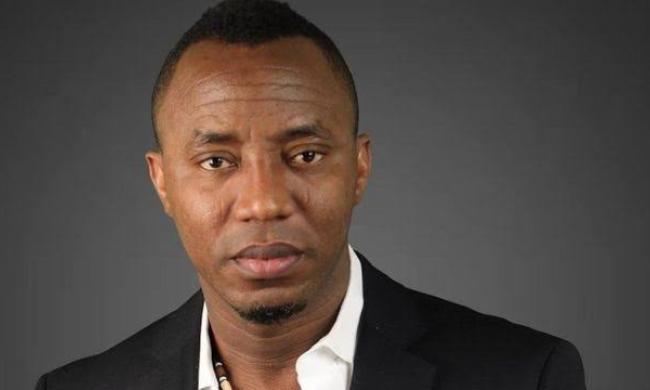
Omoyele Sowore, the Convener of the #RevolutionNow movement, has openly condemned Nigeria’s justice system, accusing it of favoring the wealthy and powerful while oppressing the less privileged. Speaking at a session organized by the HEDA Resource Centre titled “2024 Review of Human Rights Abuse in Nigeria” on Wednesday, Sowore described Nigerian laws as cobwebs that only entangle the weak, leaving the strong unscathed.
A Broken Justice System
Sowore highlighted several instances of injustice, including military generals who committed atrocities, governors who embezzled public funds, and former presidents who looted the treasury, none of whom faced significant consequences.
“None of these individuals have spent a night in jail,” he remarked. He further criticized the system for swiftly releasing those with connections who briefly encounter justice, while the poor face severe punishment for minor offenses.
He shared a striking example of a man on death row since 2003 for repairing a stolen generator. “Meanwhile, generals have wiped out entire villages, and governors have stolen state funds, yet they walk free,” Sowore added.
Free Speech Under Threat
The former African Action Congress (AAC) presidential candidate also condemned the Nigerian government’s increasing attempts to stifle free speech. He pointed to the misuse of the Cybercrime Act, initially introduced to combat internet fraud but later weaponized to silence dissent. Although the controversial Section 24 of the Act has been repealed, Sowore criticized the police for continuing to enforce it, calling this a violation of the rule of law.
He expressed concern over the government’s efforts to introduce new social media laws, describing them as draconian measures targeting platforms like TikTok, Facebook, and Instagram. Sowore argued that these laws disproportionately target citizens who criticize the government, while state-controlled media outlets propagate misinformation without consequence.
State Media and Misinformation
Sowore ridiculed the narrative around “fake news,” stating that those promoting it are often the worst offenders. He accused state media like the Nigerian Television Authority (NTA) and Radio Nigeria of consistently broadcasting false claims, including misleading reports about the country’s economy.
“If the government won’t hold corrupt officials and state media accountable for spreading misinformation, it has no right to clamp down on ordinary citizens expressing their views on social media,” Sowore argued.
Social Media: A Tool for Accountability
He described social media as a level playing field for citizens to hold leaders accountable, noting that platforms like Twitter (now X) have become avenues for reporting government misconduct. Sowore recalled how the Buhari administration shut down Twitter for months when it failed to suppress dissent through legal means.
“These platforms have empowered ordinary Nigerians to challenge the government, governors, and even the president,” he said.
A Call for Justice
Sowore criticized the government’s focus on arresting TikTokers and social media users for “fake news” while state-controlled media spreads misinformation unchecked. He mocked the hypocrisy, saying, “When a TikToker says a pastor hasn’t performed a miracle, they are not lying.”
Sowore concluded by emphasizing the need for reforms in Nigeria’s legal system and an end to the government’s suppression of free speech.
For updates, join our WhatsApp channel: https://whatsapp.com/channel/0029VabITrvEAKW7DSkTfP0J.
Source: Chronicles Reporters